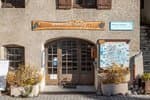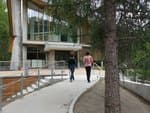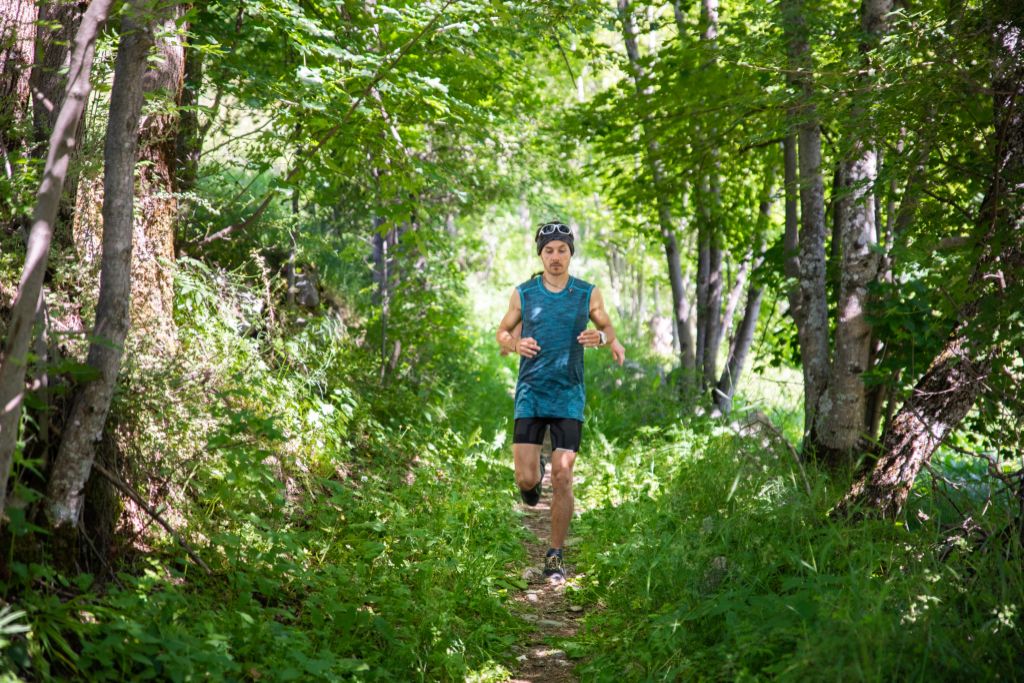
Puy Aillaud (trail route no. 19)
“Emerging onto the plateau of Puy Aillaud amidst the meadows, passing below this tranquil hamlet and then dropping back down along an old track to the charming chapel of Saint-Jean almost makes you forget the great features of the rest of the route.” Marie-Geneviève Nicolas, park ranger at the Parc National des Écrins
Description
When you come to the the Vallouise bridge ("Pont de Vallouise"), take the track leading up the left-hand bank of the Gyr leading towards Pelvoux.
- Cross the Gyr over a wide footbridge and after a short distance, on a hairpin in the track, take a path running below a stable and soon after this take the path on the right to Puy Aillaud.
- After the Pas d'Aval, a short narrow stretch through boulders, follow the yellow or white painted posts until you reach the road. Turn left onto the road to pass below the village of Puy Aillaud and the take the track towards the chapel of Saint-Jean.
- Turn left back onto the road for a hundred metres or so, leaving the walking trail that leads away straight ahead.
- After the hairpin, you plunge onto a steep path edged with deciduous trees running straight down the slope. The path runs through a forest of oak and pine trees, and you continue the descent until you reach Vallouise. The descent can be slippery in places.
- Departure : Camping Huttopia, Vallouise
- Arrival : Camping Huttopia, Vallouise
- Towns crossed : Vallouise-Pelvoux
Altimetric profile
Recommandations
Before setting off, it is very important to check the opening periods for this route on the website: https://stationdetrail.com/fr/stations/le-pays-des-ecrins/parcours
Share your photographs on social networks with #stationdetrailecrins
Check weather conditions before setting off.
Rescue services contact details: Secours Montagne (Mountain Rescue): +33 (0)4 92 22 22 22 or 112
Show consideration for the work of farmers, livestock keepers and owners
Close all gates behind you
Take your litter home
Do not take shortcuts across pastureland
The trail routes are also suitable for walking
Information desks
Place de l'Eglise, 05340 Vallouise
Vallouise Park house
, 05290 Vallouise
Information, documentation, models, exhibitions, screenings, product sales and works of the Park. Guided tours for school, reservation required. The new Park House opened in Vallouise since June 1, and offers visitors an interactive permanent exhibition inviting to explore the area and its heritage. A temporary exhibition space will allow a renewed offer. Finally, the device is completed by an audiovisual room to organize screenings and conferences Free admission. All animations of the Park are free unless otherwise stated.
Transport
Public transport >> www.pacamobilite.fr
Consider car-sharing >> www.blablacar.fr
For more information, ask at the Tourist Information Office nearest to the trail starting point.
Access and parking
10 km from L'Argentière-La Bessée, take the D994E.
Parking :
9 points of interest
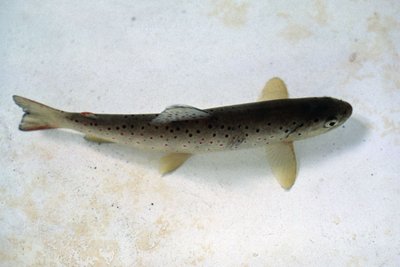
La truite fario - Parc national des Écrins  Fauna
FaunaThe trout
But what's the angler angling for? The brown trout of course! This is the mountain fish par excellence, with a streamlined body to withstand the current more efficiently and light brown skin speckled with black and red. It lives in cold, oxygen-rich waters.
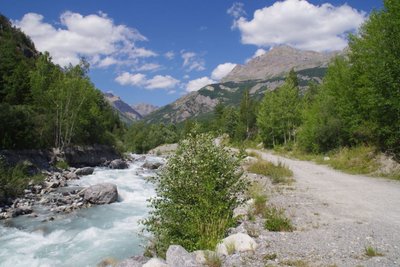
Forêt au bord du Gyr - Office de tourisme Pays des Écrins  Flora
FloraForest on the water's edge
This small wood is a fragment of the riparian forest: natural forest growing adjacent to a body of water. Reduced everywhere due to urbanisation, this type of forest is made up of alder, willow and oak, and also poplar, birch and aspen, among others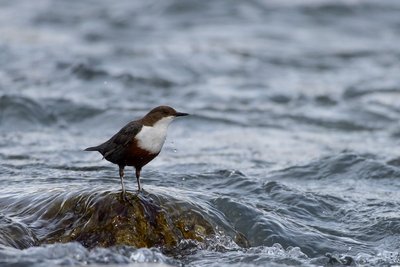
Cincle plongeur - Mireille Coulon - Parc national des Ecrins  Fauna
FaunaThe white-throated dipper
Perched on a rock in the middle of the river, a squat bird with a short tail, brown with a large white bib, bobs up and down with his tail in the air. He then dives and only reappears a few moments later. This is how this bird hunts, diving into the water and then walking against the current along the river bed searching for aquatic insect larvae, small crustaceans or small fish, lifting pebbles with its beak to dislodge them.
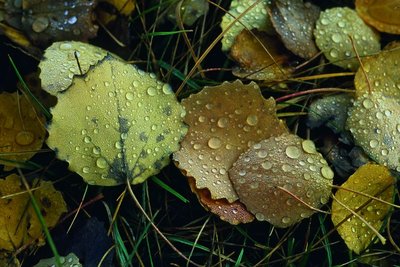
Des feuilles de tremble - Bernard Nicollet - Parc national des Écrins  Flora
FloraThe aspen
On the right, a stand of aspens with smooth, greenish trunks and rounded, crenelated leaves take on magnificent colours in autumn. The stem, or petiole, of aspen leaves is flat and twisted, so it can be caught by the slightest breeze making the foliage «quake» hence its common name, the quaking aspen.
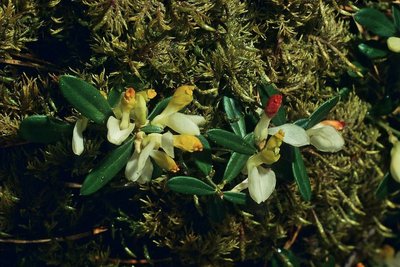
Polygale petit buis - Jean-Pierre Nicollet - Parc national des Écrins  Flora
FloraThe shrubby milkwort
The shrubby milkwort grows in the undergrowth. This creeping sub-shrub has glossy oval leaves, similar to box leaves. The flowers are white and orangey yellow. Common in the Alps, it grows in open woods and dry forests.
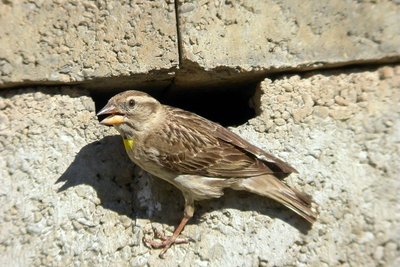
Le moineau soulcie - Damien Combrisson - Parc national des Écrins  Fauna
FaunaThe rock sparrow
A little flock of rock sparrows can often be spotted around Puy Aillaud. This large sparrow earned its French name moineau soulcie, (sourcil meaning eyebrow) because it has a large white eye-stripe. It also has a dark head, a brown back with white stripes, and a white breast and underside striped with light brown. It has a small yellow throat spot, often not visible. It is a year-round resident.
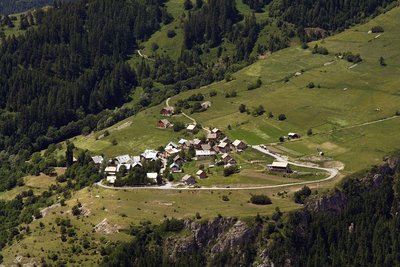
Hameau de Puy Aillaud - Jean-Philippe Telmon - Parc national des Écrins  History
HistoryThe hamlet of Puy Aillaud
Puy Aillaud is a permanently inhabited hamlet and the highest in Vallouise (1,580 m). This hamlet has preserved some beautiful traditional houses.
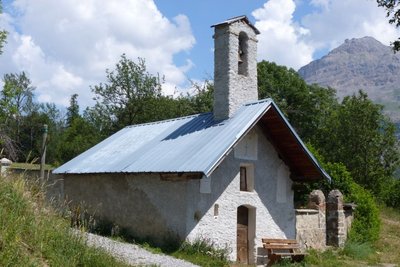
La chapelle Saint-Jean - Office de tourisme Pays des Écrins  History
HistoryThe chapel of Saint-Jean
Surrounded by a cemetery and with a bench installed to the front of its façade, this pretty little seventeenth century chapel has an air of peaceful tranquillity. Maybe to sit and watch the trail runners?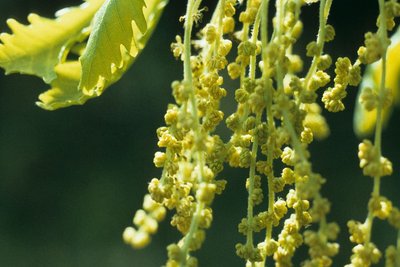
Chêne pubescent - Parc national des Écrins  Flora
FloraThe downy oak
The route leads down a warm slope, where the downy oak reigns supreme. It is a small oak tree with a twisted growth habit and with marescent leaves, that is to say, they dry out in the autumn but remain on the tree all winter. It is called "downy" because the young branches, buds and sometimes the undersides of its leaves are covered in a fine down. It is a tree that grows happily on the warm dry slopes.
Source

Report a problem or an error
If you have found an error on this page or if you have noticed any problems during your hike, please report them to us here:

